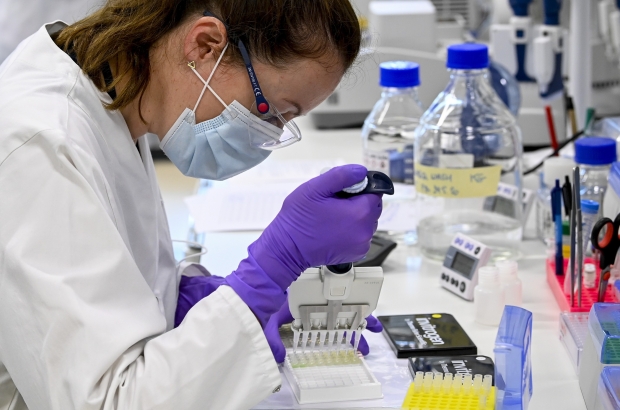- Daily & Weekly newsletters
- Buy & download The Bulletin
- Comment on our articles
Wastewater analysis shows rise in coronavirus cases
An analysis of wastewater in Belgium confirms the recent spike of Covid-19 cases in the country, according to an analysis from health institute Sciensano.
The programme to monitor the circulation of Covid-19 in wastewater began three years ago and covers 42% of the Belgian population, RTBF reports. Concentrations of SARS-CoV-2 are measured twice a week in 41 of Belgium’s wastewater treatment plants.
The most recent measurements show intense circulation of the virus in wastewater, reflecting a rise in cases. Some 24 out of 40 measurement zones are on alert due to high levels of the virus.
There are three possible alerts for each measurement station: a "high circulation" alert, a "rapid increase" alert and an "upward trend" alert. The upward trend alert was registered at 22 stations, while the rapid increase alert was sounded at 17.
At a regional level, the viral load is high and increasing in Wallonia and Flanders, with the most rapid increases seen in the provinces of Hainaut, Liège, Namur and East Flanders.
“Wash your hands regularly with soap and water, ventilate indoor spaces and stay at home if you are ill,” public authorities said, reiterating that flu and Covid vaccines for at-risk groups are recommended.
No additional measures are currently being considered to reduce the number of Covid-19 cases at this time, the federal health ministry said, as the pressure on the healthcare system remains under control.
Risk Assessment Group experts will meet to discuss possible new measures for the future, such as a potential mandatory mask requirement for hospitals.
As Belgium monitors the current Covid situation, authorities are still investigating the past handling of the pandemic. In 2022, Belgium’s federal health authorities changed its service provider for the distribution and storage of the strategic reserve of drugs, tests and vaccines from Belgian SME Medista to French multinational Movianto.
Medista had the contract between 2020 and 2022. It claims that Movianto won the contract thanks to help from an official at the federal health ministry.
Medista has put forward evidence, including videos obtained on hidden camera with the help of a private investigation company.
The video appears to show an official from the health ministry explaining how she had helped Movianto win the contract.
Medista lodged an unsuccessful appeal with the Council of State, also alleging that the ministry failed to pay some €5.3 million in overdue invoices.
The health ministry, in turn, said that the amounts invoiced were exorbitant and unjustified, and the dispute is ongoing.
“For two years, we wrote letters to health minister Vandenbroucke, trying to keep the lines of communication open and warn him of the anomalies that were occurring in his administration,” Medista’s managing director Sarah Taybi told RTBF.
“He never wanted to see us, listen to us or reply to our letters. The Council of State said more evidence was needed. There were two possibilities: either we could take legal action, which would take 10 years, or we ourselves could gather evidence. We brought the evidence.”
Vandenbroucke referred back to the Council of State’s ruling in his reaction.
“All of Medista's arguments and accusations were examined in detail by the Council of State a year ago – they issued a very detailed ruling, 70 pages of analysis,” Vandenbroucke said.
“The procedures organised by my officials have been validated by the Council of State in a ruling that says Medista is wrong on every point.”
But in terms of the new video evidence, Vandenbroucke said he only saw “part” of the footage and would like an audit to provide a clearer picture.
“I want an investigation into all the elements of the procedure that are relevant to understanding what is going on in this video,” said Vandenbroucke.


















